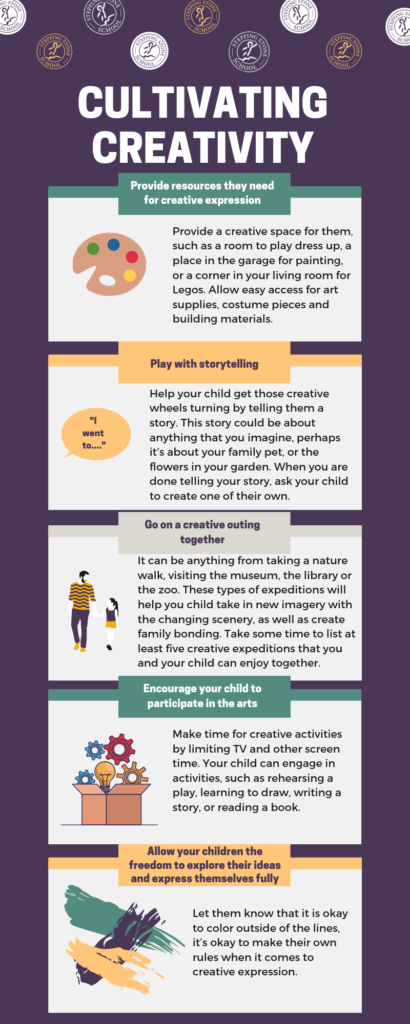Cultivating Creativity
It is a common assumption among many parents that creativity is a talent their children are born with and either do or do not have. While it is true that a creative talent does not come equally to everyone, evidence suggests that creativity is more skill than inborn talent and it is a skill that parents can help their child develop. Creativity plays an important role in health and happiness and is not limited to artistic and musical expression. Furthermore, it is essential for math, science and emotional intelligence.
Here are some ways you can encourage creativity in your child:
- Provide resources they need for creative expression. Provide a creative space for them, such as a room to play dress up, a place in the garage for painting, or a corner in your living room for Legos. Allow easy access for art supplies, costume pieces and building materials.
- Play with storytelling. Help your child get those creative wheels turning by telling them a story. This story could be about anything that you imagine, perhaps it’s about your family pet, or the flowers in your garden. When you are done telling your story, ask your child to create one of their own.
- Go on a creative outing together. This can be a once-a-week dual adventure that you and your child can plan and look forward to. It does not have to be big and it can be anything from taking a nature walk, visiting the museum, the library or the zoo. These types of expeditions will help you child take in new imagery with the changing scenery, as well as create family bonding. Take some time to list at least five creative expeditions that you and your child can enjoy together.
- Encourage your child to participate in the arts. Make time for creative activities by limiting TV and other screen time. Your child can engage in activities, such as rehearsing a play, learning to draw, writing a story, or reading a book.
- Allow your children the freedom to explore their ideas and express themselves fully. Let them know that it is okay to color outside of the lines, it’s okay to make their own rules when it comes to creative expression.
Your children develop their creative skills and explore unknown talents, allows them to connect to something greater, and expand their imaginations.
